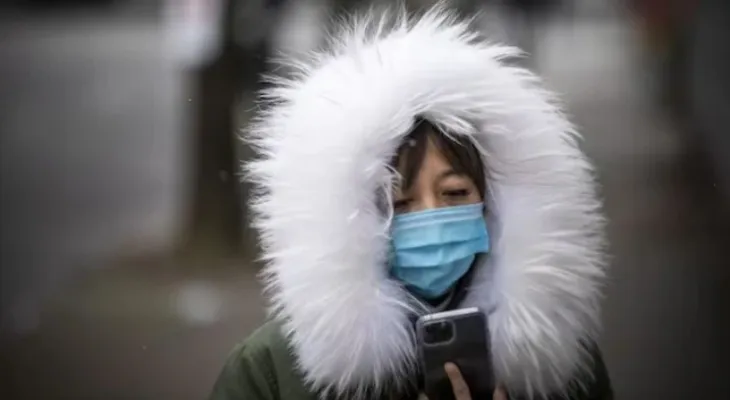Search here
Newspaper
Search here

Arab Canada News
News

Published: January 12, 2024
Warnings of Arctic outflow have been issued across most of the coast of British Columbia, where severe cold dominates vast areas of western Canada.
The Canadian Environment Agency issued Arctic outflow warnings for most of the coast of British Columbia, saying that strong winds could cause temperatures to drop to as low as -30 degrees Celsius in some areas.
Biting winds are expected Thursday night to reach Metro Vancouver, Greater Victoria, Fraser Valley, and much of the central and northern coast.
Air temperatures are also expected to drop to -12 degrees Celsius in Vancouver and -10 degrees Celsius in Victoria. The Canadian Environment Agency said that Arctic air combined with strong winds reaching 60 km/h in the area will generate cold winds down to -20 degrees Celsius at least until Saturday.
Snowfall is also expected across southwestern British Columbia Friday night.
Severe cold warnings remain in effect across most of central and northern British Columbia, extending to vast areas of Yukon, the Northwest Territories, Saskatchewan, and all of Alberta.
Some communities are experiencing air temperatures below -40 degrees Celsius, with accompanying winds making temperatures feel as low as -50 degrees Celsius in some areas.
Similarly, cold winds may cause temperatures to drop to -50 degrees Celsius, as Arctic air dominates central and northern British Columbia.
The Canadian Environment Agency warns of frostbite and hypothermia occurring within minutes if adequate precautions are not taken when outdoors.
The Meteorological Office said the risks associated with severe cold are greatest for children, the elderly, people with chronic illnesses, those working or exercising outdoors, and those without proper shelter.
In the same context, the government earlier this week said residents should prepare for hazardous road conditions, extremely cold temperatures, and an increased risk of avalanches.
On Wednesday, the City of Vancouver issued a general bulletin saying it will prepare for the impending cold weather by salting roads and main pedestrian and bike routes, as well as opening winter shelters.
With freezing temperatures and the possibility of snow in Vancouver, the city is ready to help keep residents safe on streets, sidewalks, and bike lanes.
For those sheltering outdoors, the city and its partners have activated options for people to access housing; the housing department has a tool on its website to find shelters, such as those for extreme weather, throughout the province.
TransLink, the transportation authority in Metro Vancouver, said it is preparing transit services for the upcoming winter weather, including by spreading anti-ice solution on trolley wires and electric rails, running trains overnight to prevent snow accumulation, and salting all pathways at transit stations.
WorkSafeBC, the occupational health and safety regulator in British Columbia, issued a warning to employers to conduct regular risk assessments to protect workers during changing weather conditions.
A WorkSafeBC spokesperson also said that work-related vehicle accidents occur in greater numbers, on average, in November, December, and January compared to any other three-month period.
Comments